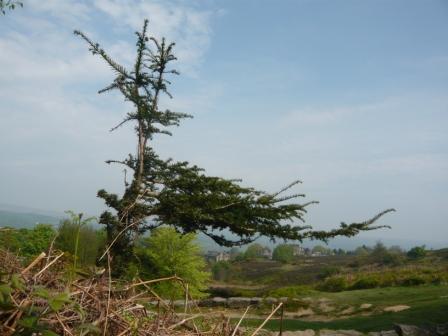Basic Gardening Tips

Three Helpful Gardeners
Plants want to survive, they do not set out to annoy gardeners ! All a gardener needs to do is to help plants to fulfill their ambitions of life and procreation.
As with humans and animals Mazlow’s hierarchic of basic needs applies in the garden. Physiologically water, warmth, food and rest are crucial. Safety needs such as security and a place to live, reproduce and grow plus a bit of esteem or love will help.
Water Tips
- Soil needs to be able to retain moisture. Extremely sandy or gravelly soil needs to have lots of humus added perhaps in the form of compost. Tip. Improve the planting hole, make it twice as big and deep as you think you need.
- Water needs to get down to the ‘drinking roots’ which are often deeper than the feeding surface roots. Water well to get deeper in the ground rather than little and often.
- Fleshy leafy plants like salad and veg need more water than woody shrubs with fewer leaves to transpire.
- A small plant pot holds a lot less water than a big pot. It dries quicker, gets hot faster and runs out of food sooner.
- More houseplants drown than die of thirst. Roots can’t breath under waterlogged conditions.
Warmth Tips
- Plants tend to be seasonal so consider what you grow and where.
- Young leafy growth is more likely to be damaged by frost or strong winds.
- Some roots will die if the ground freezes. A mulch may help.
- Strong sun can burn shoots and leaves.
- Hot, dry conditions will desiccate many plants and they can die. Shade a greenhouse in summer.
- Many plants thrive on good light and dark can be very bad.
Food Tips
- We all need food and plants are no different.
- Photosynthesis converts sunlight into sugars for plant food.
- Water draws food into chlorophylled leaves for photosynthesis to start.
- Soil in ‘good heart’ will contain food to be dissolved and feed the plants.
- Extra food can be provided by granular or liquid fertilisers.
- Excess fertiliser may encourage weak growth.
Rest and Safety
- Locate your plants in appropriate surroundings.
- If the location turns out to be wrong change it or get another plant.
- Rest easy by sorting disease and pest with controls as soon as possible.
- Remove competition by weeding.
- Support plants that grow tall like sweet peas or are prone to wind damage like some perennials.
- Beware of wind that can damage growth and rock plants to their roots

Windy Ridge